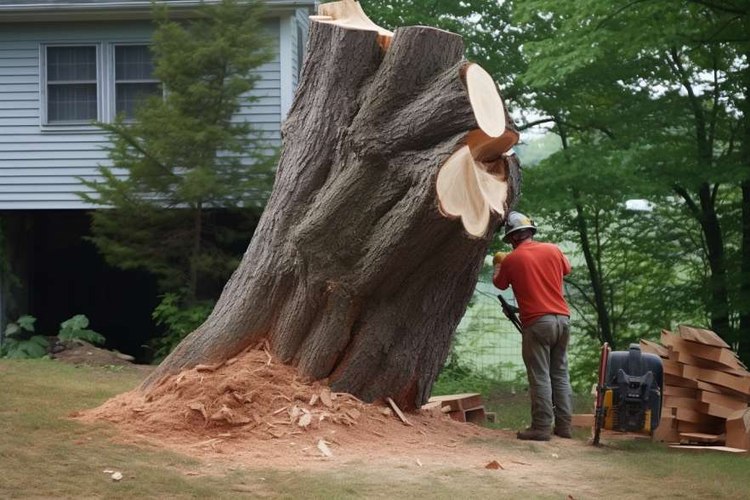Understanding How Chainsaw Rentals Are Typically Arranged
Chainsaw rental services are often organized for short-term use in outdoor tasks such as yard maintenance or pruning. Rental terms may vary by provider and include considerations such as equipment type, features, usage duration, and return conditions.

What Should You Know Before Renting a Chainsaw?
Before renting a chainsaw, it’s crucial to understand your specific needs and the safety considerations involved. First, assess the job at hand – are you dealing with small branches or larger tree trunks? This will determine the size and power of the chainsaw you’ll need. Additionally, consider your experience level. If you’re new to using chainsaws, opt for a model with safety features like chain brakes and low-kickback bars.
It’s also important to familiarize yourself with proper safety gear. Most rental companies will require you to use personal protective equipment (PPE) such as safety glasses, ear protection, gloves, and chaps or safety pants. Some may even include these items with the rental, while others might charge extra or require you to provide your own.
What Are Common Rental Terms for Chainsaw Use?
When renting a chainsaw, you’ll encounter several common terms and conditions. Rental periods typically range from a few hours to several days or even weeks. Most companies offer daily, weekend, and weekly rates. Be sure to clarify the exact pickup and return times to avoid additional charges.
Many rental agreements include a fuel policy. Some companies provide the chainsaw with a full tank and expect it to be returned full, while others may charge a refueling fee. It’s also common for rental companies to require a security deposit, which is refundable upon the safe return of the equipment in good condition.
Maintenance responsibilities are another crucial aspect of rental terms. While the rental company is usually responsible for major repairs and regular maintenance, you may be expected to perform basic tasks like chain tensioning and bar oil refilling during your rental period.
How Are Chainsaw Rentals Typically Priced?
Chainsaw rental prices vary based on several factors, including the size and power of the saw, the duration of the rental, and your location. Generally, you can expect to pay more for larger, more powerful models and for longer rental periods.
Here’s a comparison of typical chainsaw rental prices from major providers:
| Provider | Small Chainsaw (14”-16”) | Medium Chainsaw (18”-20”) | Large Chainsaw (24”+) |
|---|---|---|---|
| Home Depot | $39-$49/day | $49-$59/day | $69-$79/day |
| Sunbelt Rentals | $45-$55/day | $55-$65/day | $75-$85/day |
| United Rentals | $40-$50/day | $50-$60/day | $70-$80/day |
| Local Hardware Stores | $35-$45/day | $45-$55/day | $65-$75/day |
Prices, rates, or cost estimates mentioned in this article are based on the latest available information but may change over time. Independent research is advised before making financial decisions.
Many rental companies offer discounted rates for longer rental periods. For example, a weekend rate might be only slightly more than a single-day rate, while weekly rates can offer significant savings compared to daily rentals.
What Safety Precautions Should You Take When Renting a Chainsaw?
Safety should be your top priority when renting and using a chainsaw. Before accepting the rental, inspect the chainsaw for any visible damage or wear. Ensure that all safety features, such as the chain brake and throttle lock, are functioning correctly.
Most reputable rental companies will provide a brief orientation on how to use the chainsaw safely. Pay close attention to these instructions, even if you have experience with chainsaws. If you’re unsure about any aspect of operation or safety, don’t hesitate to ask questions.
Remember to always wear the appropriate safety gear, including a hard hat, safety glasses, ear protection, gloves, and chaps or safety pants. Never operate a chainsaw while tired or under the influence of drugs or alcohol, and always maintain a safe working environment, keeping bystanders at a distance.
How Should You Prepare for Returning a Rented Chainsaw?
When your rental period is coming to an end, take some time to prepare the chainsaw for return. Clean the exterior of the saw, removing any debris or sawdust. If required by your rental agreement, refuel the chainsaw to the level it was at when you received it.
Check the chain tension and bar oil level, adjusting or refilling as necessary. If you encountered any issues or noticed anything unusual during use, inform the rental company when returning the equipment. This helps ensure the safety of future renters and maintains a good relationship with the rental provider.
Chainsaw rentals offer a convenient and cost-effective solution for occasional users needing this powerful tool. By understanding the typical rental arrangements, including pricing, terms, and safety considerations, you can ensure a smooth and productive experience. Whether you’re tackling a one-time project or seasonal maintenance, renting a chainsaw can provide you with the right tool for the job without the long-term commitment of ownership.




